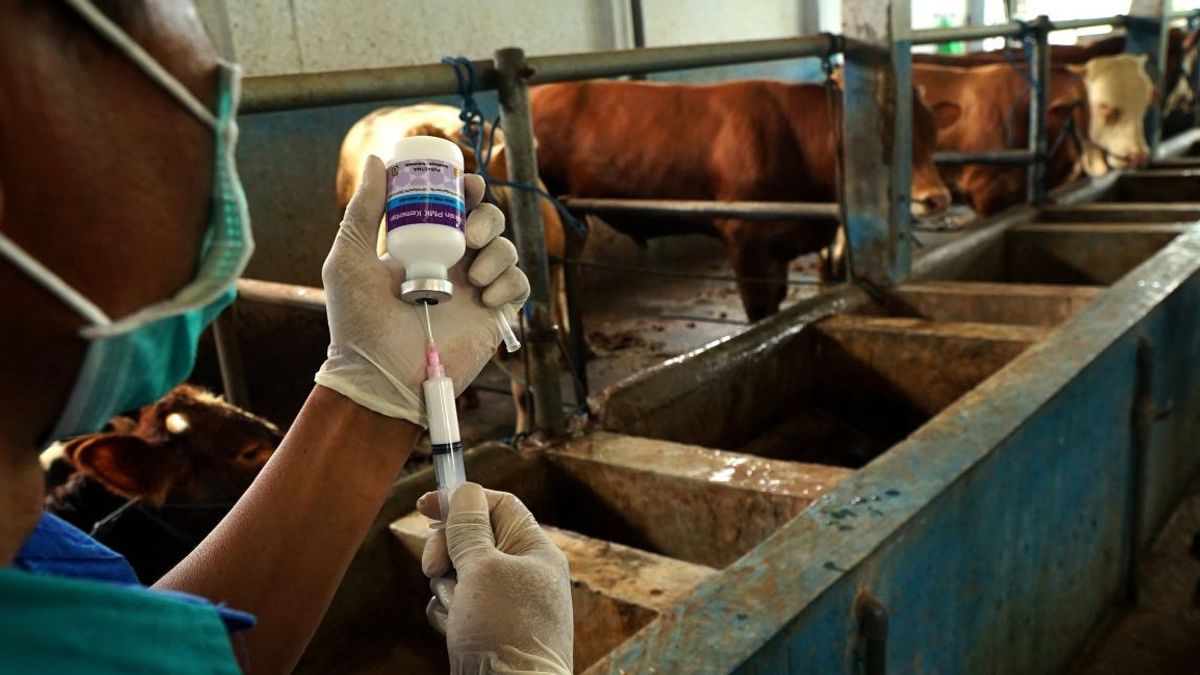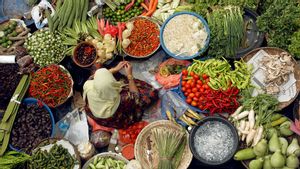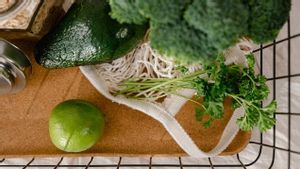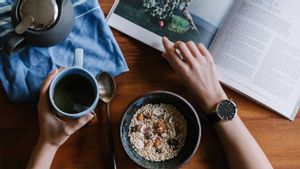JAKARTA - Head of the Livestock Science Laboratory of the Faculty of Animal Husbandry, Gadjah Mada University (UGM) Nanung Danar Dono emphasized the importance of using herbal or phytobiotic drugs to cure livestock contracting mouth and nail disease (PMK).
Nanung at the "Fapet Menyapa" event at the Faculty of Animal Husbandry UGM, Yogyakarta, Friday, January 24, said that herbal medicine has great potential to increase the endurance of livestock so as to be able to fight the bad effects of the PMK virus.
"PMK is caused by the virus. The virus loses to immunity. So that the livestock is strong with PMK, the immunity is maintained. One of them is herbal as an additive feed," he said. quoted by Antara, Saturday, January 25.
Nanung explained that vaccination is only effective if given to livestock that are still healthy to increase immunity before the disease attacks.
"If the livestock is sick, giving the vaccine can actually worsen its condition," he explained.
For livestock that have been infected with PMK, he said, the right treatment is by providing antibiotics, vitamins, and additional supplements, including herbal or phytobiotic drugs.
"Once you have been infected, don't get vaccinated, but treat antibiotics. Then help with herbs," he said.
According to him, antibiotics commonly given by veterinarians treat secondary infections due to bacteria, while herbal medicines function to support livestock immunity.
"Herbal acts as a supporter of antibiotic tasks by increasing endurance from within. This combination is very effective if done properly," he said.
Nanung mentions that various types of herbal plants such as temlawak, turmeric, and ginger have the content of active compounds that function as natural antiviral, antibacterial, and antioxidant.
The cumalwak, he said, functions as an obstacle to appetite. When the appetite for livestock increases, the intake of nutrients becomes better so that the immune system also increases.
"Kunyit also contains natural antibiotic active compounds that are higher than temulawak, while ginger also has a significant natural antibiotic effect," he said.
According to him, the use of this herbal can be done by mixing it into feed or as a "feed additive", as well as livestock drinking water.
Nanung said this method had proven effective in helping livestock recover from PMK, especially if given regularly and consistently.
Although the herbal benefits are quite large, Nanung admits that so far not a few breeders do not know or take advantage of the potential for this herbal medicine.
Therefore, Nanung added that education and socialization to farmers is very important to increase their understanding of the benefits of herbal formulas for livestock.
BACA JUGA:
"Many farmers don't know. Because the name of the herbal medicine is sometimes not instantaneous. It can't be given now, then it immediately heals. So it goes up slowly," he said.
To ward off parasitic infections in ruminansia, the UGM Fatet Livestock Science Laboratory has also examined herbal ingredients from Kabusra leaves and mahogany leaves as bioantilemistic.
Professor of Fapet UGM Prof. Kustantinah said that the secondary metabolite content in feed greenness was able to reduce the effect of decreasing livestock performance triggered by parasitic infection.
"The exploration of tropical plants and their utilization need to be further encouraged as a strategy to increase the productivity of Indonesian livestock," said Kustantinah.
The English, Chinese, Japanese, Arabic, and French versions are automatically generated by the AI. So there may still be inaccuracies in translating, please always see Indonesian as our main language. (system supported by DigitalSiber.id)














